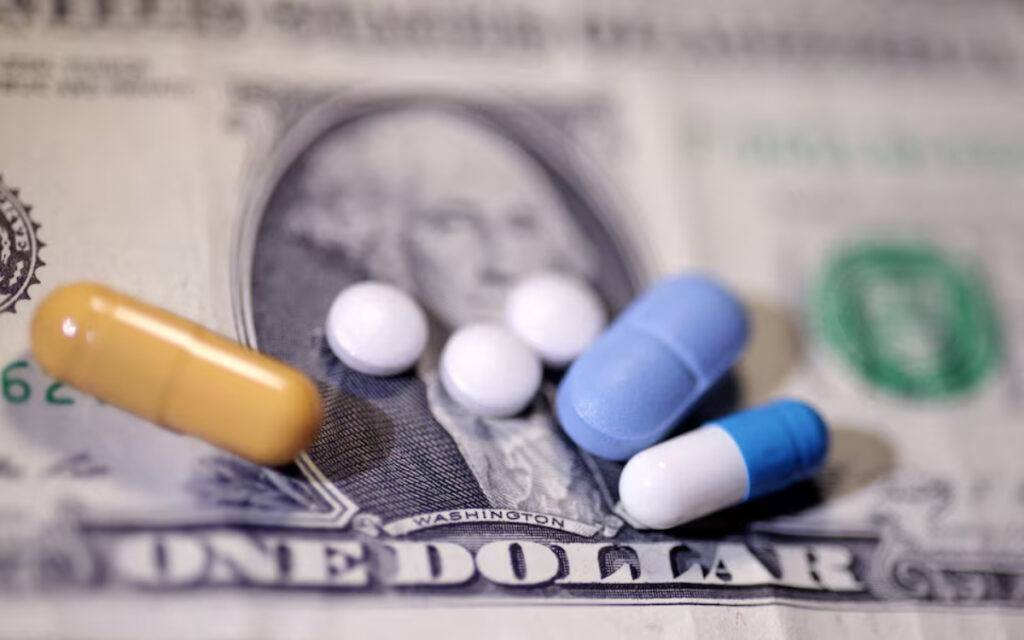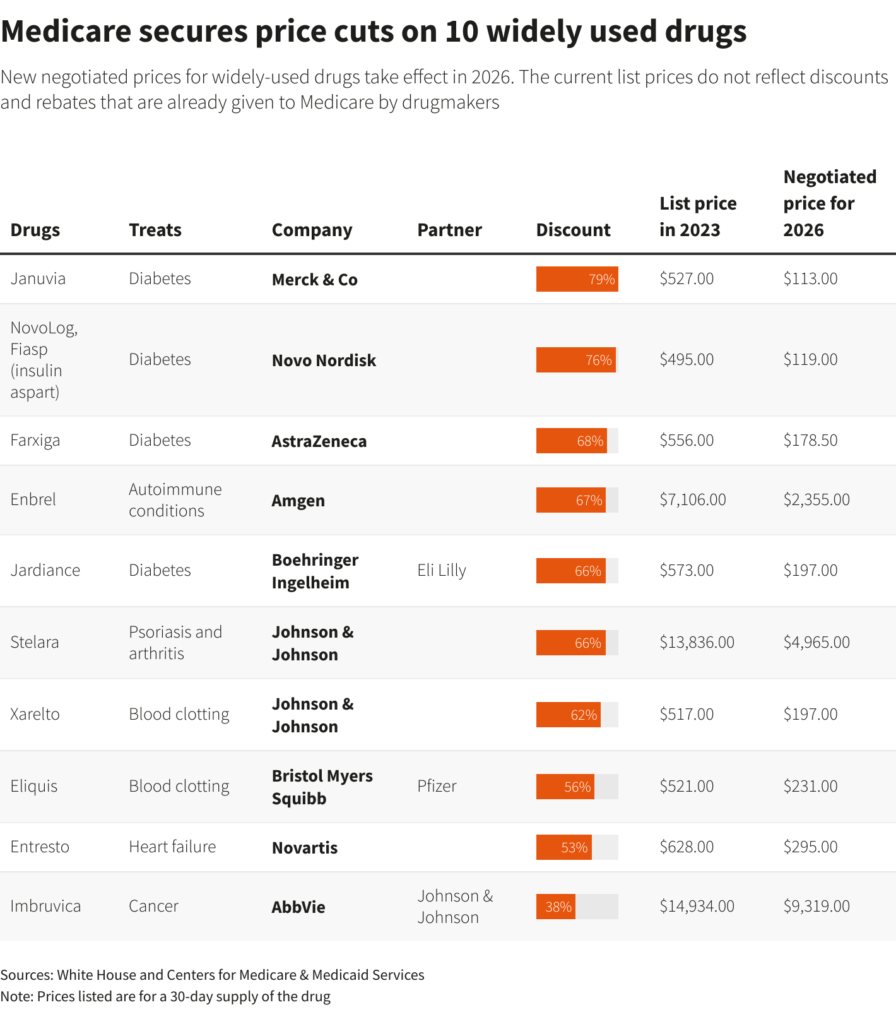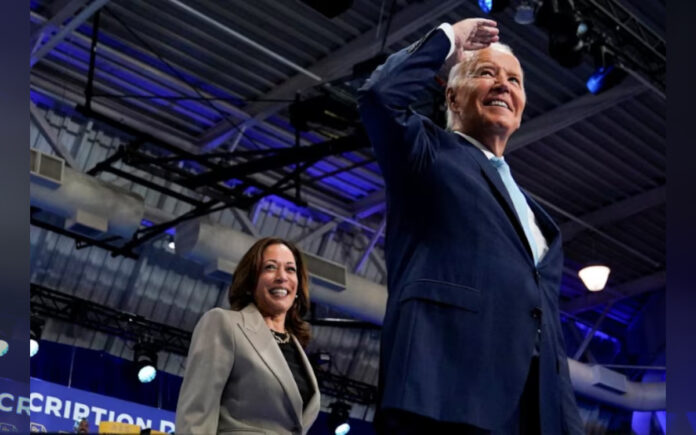Largo, Maryland: The United States has successfully negotiated significant price reductions on 10 top-selling prescription drugs used by Medicare, with cuts reaching up to 79%. This move is projected to save $6 billion in the first year and comes as President Joe Biden aims to address concerns over high drug costs ahead of the upcoming November elections.
President Biden’s Inflation Reduction Act, enacted in 2022, is the first legislation allowing Medicare to negotiate prices for some of the program’s most expensive drugs. The new prices are set to take effect in 2026.
“We finally beat Big Pharma,” Biden declared during an event in Largo, Maryland, where he was joined by Vice President Kamala Harris.
The administration hopes these savings will help alleviate Americans’ frustrations with rising drug prices, a key issue in the contentious presidential race between Harris and Republican former President Donald Trump.
“My entire career, I have worked to hold bad actors accountable and lower the cost of prescription drugs,” Harris stated. “Medicare can use that (collective bargaining) power to go toe-to-toe with Big Pharma and negotiate lower drug prices.”
The price reductions are based on list prices and do not account for any existing government rebates and discounts. However, the estimated savings from these negotiations do incorporate these factors. Harris’ tie-breaking Senate vote was crucial in passing the law allowing these negotiations, a measure that faced unanimous Republican opposition. In a statement, Harris also highlighted her previous work as California Attorney General in holding pharmaceutical companies accountable for deceptive practices.

During the event, Biden used the occasion to support Harris, calling her a “hell of a president” and criticized Republicans for opposing Medicare’s right to negotiate drug pricing. Republican House leaders, including Speaker Mike Johnson, labeled the negotiations as “price fixing,” claiming they lead to higher healthcare costs and stifle innovation.
The administration has projected that Medicare beneficiaries will save an additional $1.5 billion in out-of-pocket costs for these drugs in 2026. Among the drugs facing the largest cuts, Merck & Co’s Januvia will see a 79% reduction, while Novo Nordisk’s insulin aspart products will experience a 76% cut. The remaining eight drugs will see reductions ranging from 68% to 38%.
Analyst Evan Seigerman of BMO Capital Markets suggested that investors should focus on the difference between the new discounted prices and the final net prices. U.S. Health Secretary Xavier Becerra noted that net prices are confidential, and the government has not indicated whether they will be disclosed in the future.
Also Read | US Lawmakers Demand Probe into TP-Link Over Cybersecurity Threats
Drugmakers have expressed concerns that these discounts may not reduce out-of-pocket costs for patients and could impact future innovation. Some companies reported that they did not expect a significant business impact from the new prices after reviewing confidential government data. Vanderbilt University professor Stacie Dusetzina remarked that while the discounts are encouraging, they are not drastic enough to threaten industry profits or innovation.
Shares of Eli Lilly fell by 0.7%, while Pfizer, Merck, and AbbVie experienced minor declines. Conversely, shares of Amgen and Bristol Myers Squibb rose by over 1%, and Novo Nordisk’s U.S.-listed shares increased by nearly 2%.

The new price cuts address concerns about patient affordability, which are influenced by health insurers and pharmacy benefit managers rather than the drug list prices alone. Johnson & Johnson and Novo Nordisk have indicated that patients may face higher costs despite the price cuts, while AstraZeneca and AbbVie have expressed their readiness to accept the new prices.
With more than half of voters in 2020 over the age of 50 and healthcare consuming about 8% of American spending, the impact of these changes is significant. Although inflation has slowed, consumers are still feeling the effects of higher prices, with prescription drug costs rising in line with overall consumer price increases.
Also Read | Poland Sets Sights on Hosting the Olympics in 2040 or 2044, Tusk Announces
The Medicare agency has accepted revised offers from drug manufacturers for four of the ten selected drugs, while final offers for five others were accepted. The pharmaceutical industry has vigorously opposed Medicare’s negotiation powers, with several companies suing the administration and warning of potential cuts to drug development.
The next round of Medicare drug price negotiations is expected to cover 15 additional drugs and will commence in February. Government officials will provide more details on the price cuts next year.



